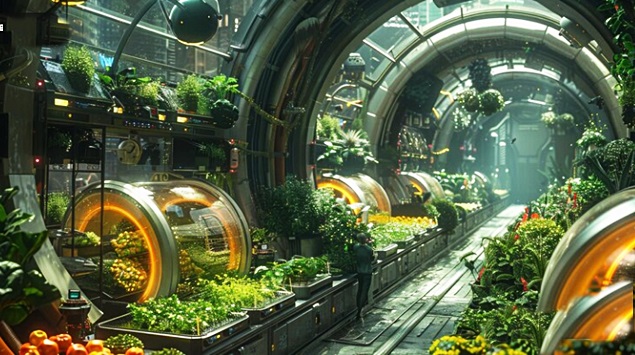1308

Experiments with Alternative Proteins in Space Could Boost Earth-Based Technology FoodNavigator highlights recent scientific reports on how space research may strengthen the future of food production on Earth.
Microbes for Food Fermentation
Microbes engineered to produce edible proteins in space could significantly strengthen the broader precision fermentation industry, paving the way for more sustainable food systems.
Scientists from Imperial College London, Cranfield University, the Bezos Center for Sustainable Protein, and the European Space Agency have teamed up to make a major leap forward in food technology.
Also involving private partners Frontier Space and ATMOS Space Cargo, the collaboration recently launched a fully automated miniature microbiology lab aboard Phoenix, Europe's first commercial reentry spacecraft, via SpaceX.
Given that astronauts typically consume food costing over €23,000 per day per person in orbit, the ability to produce food in space could substantially cut costs. But the benefits could also extend far beyond low Earth orbit.
The "extreme environment" of space offers an ideal testbed for stress-testing technologies like precision fermentation, explains Dr. Rodrigo Ledesma-Amaro of Imperial College London’s Department of Bioengineering.
Growing Edible Proteins in Space
“Working on space-based scenarios—such as planetary missions or spacecraft—forces us to rethink total resource recycling and the circularity of processes,” Ledesma-Amaro says.
“It also pushes us to develop microbial strains that can utilize a wide range of feedstocks, such as CO₂ and its derivatives, and to perform robust, long-term continuous fermentations.”
Such developments could massively enhance precision fermentation processes on Earth and open the door to food production in regions where traditional agriculture is not viable—such as deserts.
This mission coincides with a new study calling for urgent advances in food and fuel production with “minimal environmental impact.” Despite significant progress, researchers writing in Nature Biotechnology note a visible gap in current understanding of bioproduction systems.
“In general, precision fermentation has the potential to combat climate change by requiring less land to produce the same amount of food,” says Ledesma-Amaro. “Especially if we consider using CO₂ and its derivatives as feedstock, harnessed with renewable energy.”
What’s Next for Precision Proteins in Space?
The hope is that the space mission will help scientists gain the insights needed to accelerate technological breakthroughs.
“There are still many unknowns. We have to begin by understanding basic things—like the effects of microgravity and radiation on cells,” says Ledesma-Amaro.
Other focal points include what fermenters might look like in space, how the hardware and software will interact, and what kind of ‘bioware’ will be needed.
“This is precisely what we’re exploring through this collaboration between my lab, the Bezos Center for Sustainable Protein, Imperial College’s Center for Microbial Foods, and Frontier Space,” he adds.
During the initial experiment—which lasted only a few hours—scientists studied how various yeasts and bacteria behave in space, especially those capable of producing vitamins, antioxidants, pigments, proteins, and food textures.





